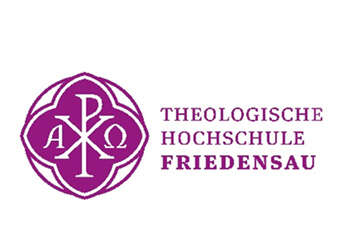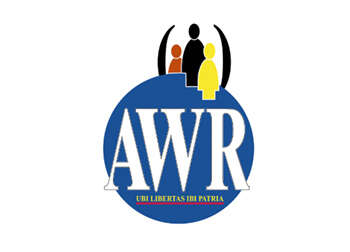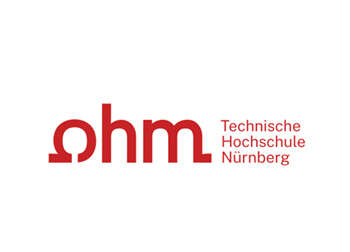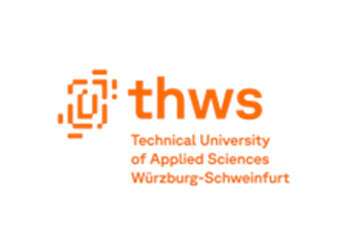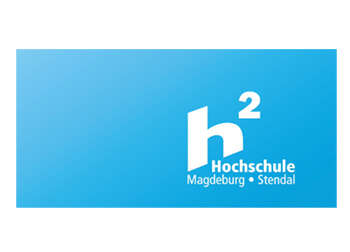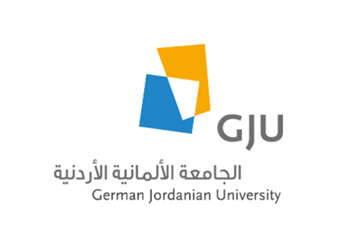-
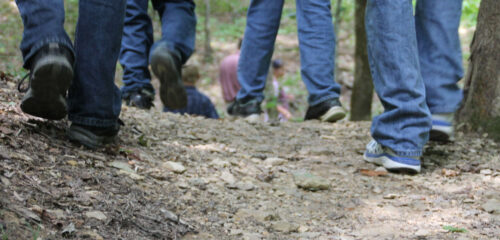
SORM 2024 - Call for Papers
SAFE, ORDERLY AND REGULAR MIGRATION: HUMANITARIAN PATHWAYS
SORM 2024
69th International AWR Conference
The 2024 “SORM Conference” on Humanitarian Pathways is a two-day multidisciplinary scientific international conference hosted by the Friedensau Adventist University (FAU) in cooperation with the Association for the Study of the World Refugee Problem (AWR), the Technische Hochschule Nürnberg Georg Simon Ohm (Ohm), the Technical University Würzburg-Schweinfurt, the University of Applied Sciences Magdeburg-Stendal (h2) and the German Jordanian University (GJU).
Streamed hybrid for a global audience, speakers are expected to contribute physically. The conference is structured in two main sessions:
- State sponsored humanitarian pathways;
- Community sponsored humanitarian pathways.
All accepted and submitted papers are supposed to be published in the double-blind peer-reviewed Quarterly on Refugee Problems – AWR Bulletin (QRP; https://ejournals.bibliothek.thws.de/qrp/index).
The event also offers an attractive side programme.
When?
23 – 25 September 2024
Where?
Friedensau Adventist University
An der Ihle 7
39291 Möckern-Friedensau
Germany
CALL FOR PAPERS
 Objectives
Objectives
To protect refugees and support host communities, the 2018 Global Compact on Refugees (A/73/12 [Part II], adopted by GA Resolution A/Res/73/151), sees resettlement and complementary pathways for admission to third countries as part of the solution. The envisioned outcome of the conference is an analysis of the current status and role of these humanitarian pathways – might they be publicly, privately or public-privately sponsored. Potentials, limitations and pitfalls will be discussed. Best practice will be shown together with failed. Their relation and effects on the right for individual refugee, subsidiary or complementary protection will be debated, especially in light of attempts for stricter migration control in turn for broadening discretionary humanitarian access.
This conference aims to bring together leading experts, policymakers, practitioners, and scholars from diverse disciplines to explore innovative and practical solutions to promote safe, orderly and regular migration through humanitarian pathways. In the tradition of AWR as the oldest research association in the field, the conference aims at fostering interdisciplinary (social sciences, political sciences, psychology, pedagogics, law, etc.) and intersectional dialogue, deepening our understanding and emphasizing human rights, international and public-private cooperation.
 Subject
Subject
Humanitarian pathways are complementary. Asylum, refugee protection and human rights-based subsidiary respectively complementary protection typically require forced migrants to take irregular and risky journeys to reach the territory or jurisdiction of safe countries. Even then often lengthy asylum procedures with uncertain outcome increase the hardship, many times under deterrent living conditions. Humanitarian pathways allow for safe, orderly and regular migration. Upon admission, they grant a stable legal status from day one. They are accompanied by pre-departure and post arrival services as well as a welcoming reception in a dignified environment. Community sponsorship supplementing public admission programmes extend outreach and widen chances for protection even further.
This, however, is at the expense of trading the right to admission for discretionary models – which is not to be seen critical as long as legal protection and humanitarian pathways are considered alternatives. It becomes crucial and debatable, though, when humanitarian pathways become a trade-off for strict migration management limiting arrivals in potential asylum countries and therefore its legal obligations for protection. It would be aggravated if States retreat further in light of privately sponsored admission leading to a privatizing of protection.
The conference’s contributions and discussions will be framed by these poles.
 Scientific Committee
Scientific Committee
‣ Prof. Dr. Sahar Al-Makhamreh, German Jordanian University, Jordan
‣ Prof. Dr. Markus Babo, Catholic University of Applied Sciences Munich, Germany
‣ Prof. Dr. Simone Emmert, LL.M.Eur., Technical University of Nuremberg Georg Simon Ohm, Germany
‣ Dr. Friedegard Föltz, Friedensau Adventist University, Germany
‣ Dr. Reká Friedery, CSS, Hungarian Academy for Excellence, Hungary
‣ Prof. Dr. Christine Hildebrandt, German Jordanian University, Jordan
‣ Prof. Dr. Ralf Roßkopf, Technical University of Applied Sciences Würzburg-Schweinfurt, Germany
‣ Prof. Dr. Uzoma Okoye, University of Nigeria Nsukka, Nigeria
‣ Prof. Dr. Albrecht Weber, University Osnabrück, Germany
 Themes
Themes
Contributions should cover one of the following main themes and subthemes from their SORM perspective:
- State sponsored humanitarian pathways
‣ resettlement, humanitarian admission, humanitarian visa, mass influx directive
‣ national schemes
‣ regional and international cooperation
‣ pre-departure and post arrival services
‣ relationship to ordinary legal protection
‣ etc. - Community sponsored humanitarian pathways
‣ concepts
‣ projects
‣ evaluation and critics
‣ legal framework
‣ relationship to international protection
‣ etc.
Submission of Proposals
 Proposals for the Scientific Part
Proposals for the Scientific Part
You can submit either an individual oral paper presentation, panel or workshop proposal (all sessions, framing several related contributions will be assigned 90 minutes each) for a single-blind review:
Categories of proposals
- Single paper proposal (timeslot for each paper: 20 min., plus 10 min. discussion)
- Panel proposal (timeslot for each panel: 90 min. incl. discussion)
- Workshop proposal online form (timeslot for each workshop: 90 min.)
Your proposal submission needs to contain
- Names and email addresses of the presenters or primary organizer and the co-organizer (if available, we prefer two presenters or organizers in case of unforeseen circumstances)
- The proposed title of the paper, panel or workshop proposal
The matching conference topics - A 400-500-word abstract of your paper for the conference programme (problem and background, methodology, analysis, results, as far as applicable)
 Proposals for the Collaboration Pitch
Proposals for the Collaboration Pitch
The conference will provide a slot where you could introduce yourself, your institution and your interest in collaboration in the fields of teaching, research or knowledge transfer. This is meant to offer a matchmaking platform for future scientific cooperation.
Your proposal submission needs to contain
- Name(s) and email address(es) of the pitcher(s)
- The proposed title for your pitch
- Filled pitching template for your pitch (see annex)
 Submissions and Deadlines
Submissions and Deadlines
Submission of proposals (abstracts)
- Deadline: 15 March 2024
- Submission to: ralf.rosskopf[at]thws.de
Single-blind review (two reviewers) for contributions for the scientific part - Acceptance/rejection letters: until 15 April 2024
Submission of presentations for the conference
- Deadline: 15 September 2024
- Submission to: ralf.rosskopf[at]thws.de
Submission for articles for publication
- Deadline: 5 January 2025
(unless otherwise approved in advance, only papers meeting the deadline will be accepted)Papers need to meet the author guidelines to be accepted (see https://ejournals.bibliothek.thws.de/qrp/about/submissions) - Submission to: https://ejournals.bibliothek.thws.de/qrp/about/submissions
Submission Deadlines
Proposals (abstracts)
15 March 2024
Presentations for the conference
15 September 2024
Articles for publication
5 January 2025
Conference Program
 Tuesday, 24 September 2024
Tuesday, 24 September 2024
- 08.30 – 9.00 | Registration, Login and Technical Support
- 09.00 – 09.30 | Opening Session
- 09.00 – 09.10 | Welcome and Technical Instructions
‣ Prof. Dr. Simone Emmert, TH Georg Simon Ohm, Nuremberg, Germany - 09.10 – 09.20 | Welcome Address
‣ Prof. Dr. Roland Fischer, Rector Friedensau Adventist University, Germany - 09.20 – 09.30 | Introduction
‣ Prof. Dr. Ralf Roßkopf, Technical University of Applied Sciences Würzburg-Schweinfurt, Germany
- 09.30 – 10.30 | Stocktaking and Perspectives
‣ Chair: Prof. Dr. Ralf Roßkopf, Technical University of Applied Sciences Würzburg-Schweinfurt Germany - 09.30 – 10.00 | Community Sponsored Humanitarian Admission: Comparative Overview and Evaluation
‣ Dr. Marisol Reyes, University of Birmingham, Birmingham, United Kingdom - 10.15 – 10.30 | Discussion
‣ Dr. Marisol Reyes, University of Birmingham, Birmingham, United Kingdom
- 10.30 – 11.00 | Break
- 11.00 – 12.30 | Ordinary Pathways and Community Sponsorship Initiatives
‣ Chair: Prof. Dr. Sevasti Trubeta, University of Applied Sciences Magdeburg-Stendal, Germany - 11.00 – 11.30 | Opportunities and Conditions for Expanding Complementary Pathways
‣ Belen Zanzuchi, Migration Policy Institute Europe, Brussels, Belgium - 11.30 – 12.00 | New Start in a Team (NesT) – An Evaluated Example for Community Sponsorship (Zivilgesellschaftliche Kontaktstelle)
‣ Tatjana Baraulina, Heads of the International Migration and Migration Governance Unit at the Research Centre of the Federal Office for Migration and Refugees, Nuremberg, Germany - 12.00 – 12.30 | Panel Discussion: Complementary Tools in the Migration Toolbox?
‣ Tatjana Baraulina, Heads of the International Migration and Migration Governance Unit at the Research Centre of the Federal Office for Migration and Refugees, Nuremberg, Germany
‣ Belen Zanzuchi, Migration Policy Institute Europe, Brussels, Belgium
- 12.30 – 13.30 | Break
- 13.30 – 15.00 | Humanitarian Pathways: Option, Alternative, Life Safer?
‣ Chair: Prof. Dr. Albrecht Weber, University Osnabrück, Germany - 13.30 – 13.50 | Stay, Return or Move On: Comparing Life Strategies of Forced Migrants in Transit Countries
‣ Prof. Dr. Ludger Pries, Ruhr University, Bochum, Germany; Prof. Dr. Christine Huth-Hildebrandt, German Jordanian University, Amman, Jordan - 13.50 – 14.10 | Regular versus Irregular Migration: Does the Humanitarian Pathway Differ?
‣ Assoc. Prof. Dr. Rania Mansour, Doha Institute for Graduate Studies, Qatar - 14.10 – 14.30 | Where to Turn? Humanitarian Pathways into Europe as an Alternative to Death Routes for Iraqi Asylum Seekers
‣ Asst. Prof. Dr. Prof. Abdullah Omar Yassen, Erbil Polytechnic University, Erbil, Iraq; Asst. Prof. Dr. Paiman Ahmad, University of Raparin, Kurdistan Region of Iraq; Asst. Prof. Dr. Alhamzah Malik Radhi Al-Sayed Noor, Universiti Sains Malaysia, Penang, Malaysia - 14.30 – 15.00 | Panel Discussion: Humanitarian Pathways as Part of the Migration Management Toolbox
‣ Prof. Dr. Ludger Pries, Ruhr University, Bochum, Germany
‣ Prof. Dr. Christine Huth-Hildebrandt, German Jordanian University, Amman, Jordan
‣ Assoc. Prof. Dr. Rania Mansour, Doha Institute for Graduate Studies, Qatar
‣ Asst. Prof. Dr. Prof. Abdullah Omar Yassen, Erbil Polytechnic University, Erbil, Iraq;
‣ Asst. Prof. Dr. Paiman Ahmad, University of Raparin, Kurdistan Region of Iraq
‣ Asst. Prof. Dr. Alhamzah Malik Radhi Al-Sayed Noor, Universiti Sains Malaysia, Penang, Malaysia
- 15.00 – 15.15 | Break
- 15.15 – 16.45 | Resettlement and Humanitarian Pathways in Practice
‣ Chair: Prof. Dr. Simone Emmert, TH Georg Simon Ohm, Nuremberg, Germany - 15.15 – 15.35 | Humanitarian Pathways for Rohingya Refugees in Malaysia through Critical Refugee Studies
‣ Tin Maung Htwe, Chiang Mai University, Myanmar - 15.35 – 15.55 | “Operation Welcome”: Humanitarian Pathway and Admission Applied to the Reception of Venezuelan Migrants in Brazil
‣ Maria do Carmo dos Santos Gonçalves, Scalabrinian Center for Migration Studies, Brazil - 15.55 – 16.15 | Woes and Challenges of the U.S. Resettlement Program: Dismantlement, Operation Allies Welcome and United for Ukraine
‣ Prof. Dr. Barbara Franz, Rider University, New Jersey, U.S.A. - 16.15 – 16.45 | Panel: Lessons to be Learned from Resettlement Schemes in Practice
‣ Tin Maung Htwe, Chiang Mai University, Myanmar
‣ Maria do Carmo dos Santos Gonçalves, Scalabrinian Center for Migration Studies, Brazil
‣ Prof. Dr. Barbara Franz, Rider University, New Jersey, U.S.A.
 Wednesday, 25 September 2024
Wednesday, 25 September 2024
- 09.00 – 10.30 | Temporary Protection
‣ Chair: Prof. Dr. Albrecht Weber, University Osnabrück, Germany - 09.00 – 09.20 | The Temporary Protection Directive in Practice: Legal Responses in Hungary to Massive Migration caused by the Russia-Ukraine war
‣ Dr. Réka Friedery, Hungarian Academy of Science, Budapest, Hungary - 09.20 – 09.40 | Temporary Ukrainian Refugees in Poland: Updated Findings
‣ Prof. Dr. Aleksandra Mężykowska and Prof. Dr Anna Młynarska-Sobaczewska. Polish Academy of Sciences. Poland - 09.40 – 10.00 | The Future of Temporary Protection under the EU Crisis Regulation
‣ Dr. Věra Honusková, Charles University, Prague, Czeck Republic - 10.00 – 10.30 | Panel: Lessons Learned for the Future of Temporary Protection
‣ Dr. Réka Friedery, Hungarian Academy of Science, Budapest, Hungary
‣ Prof. Dr. Aleksandra Mężykowska and Prof. Dr Anna Młynarska-Sobaczewska. Polish Academy of Sciences. Poland
‣ Dr. Věra Honusková, Charles University, Prague, Czeck Republic
- 10.30 – 11.00 | Break
- 11.00 – 12.30 | Refugee Studies (Part 1)
‣ Chair: Prof. Dr. Simone Emmert, TH Georg Simon Ohm, Nuremberg, Germany - 11.00 – 11.30 | Contours of a (not Entirely) New Field of Action: Presentation of Key Findings from the Survey of Professionals in Social Work with Refugees in Saxony 2017- 2020-2023
‣ Claudia Jerzak, University of Applied Sciences, Evangelische Hochschule Dresden - University of Applied Sciences for Social Work, Education and Care, Germany - 11.30 – 12.00 | From Home to Shelter: Redefining Top-down Humanitarian Initiatives in the Middle East
‣ Angelika Wagner, St. Egidio, Germany - 12.00 – 12.30 | Working through Experience: Jordan and Its Humanitarian Response to Syrian Refugees Crisis
‣ Assoc. Prof. Dr. Bader Madi, German Jordanian University, Jordan
- 12.30 – 13.30 | Break
- 13.30 – 14.30 | Refugee Studies (Part 2)
‣ Chair: Dr. Friedegard Föltz, Friedensau Adventist University, Germany - 13.30 – 14.00 | Safe third countries, safe countries of origin and risks for refugees seeking protection in Greece
‣ PhD cand. Chara Katsigianni and Asst. Prof. Eleni Koutsouraki, Hellenic Mediterranean University, Greece - 14.00 – 14.30 | Recognition of Immigrant Knowledge in U.S. Occupational Licensing Policies'
‣ PhD cand. Mary Baxter, University of Georgia, U.S.A. - 14.30 – 15.00 | International Best Practices for Responding to the Refugee Crisis: Lessons from Front-Line Social Workers
‣ Assoc. Prof. Rachel Hagues & Prof. Dr. David Cecil, Samford University, Alabama, U.S.A.
- 15.00 – 15.30 | Conclusions and Farewell
‣ Prof. Dr. Ralf Roßkopf, Technical University of Applied Sciences Würzburg-Schweinfurt, Germany Prof. Dr. Simone ‣ Emmert, Technische Hochschule Georg Simon Ohm, Nuremberg, Germany
REGISTRATION
 Registration Form for the SORM Conference
Registration Form for the SORM Conference
Register online participation
This form is disabled.
 Consent to the taking and publication of photographs and/or video recordings
Consent to the taking and publication of photographs and/or video recordings
- Consent to the taking of photographs / video recordings
I hereby give my consent that photographs and video recordings of my person within the framework of the SORM Conference „Safe, Orderly and Regular Migration. Humanitarian Pathways“ for the purpose of public relations and reporting may be made. - Consent to the further processing of the photo / video recordings
The photos/videos may be saved and subsequently edited. Planned treatments are in particular: video editing, photomontage, customization and cropping.
The subsequent processing is carried out exclusively for the fulfillment of the above-mentioned purpose. - Consent to the publication (distribution and public display) of the photo / video recordings.
The photos/videos may be published exclusively for the above-mentioned purposes in the following media (and their subdomains):
– On the websites and subdomains:
'www.thh-friedensau.de'
'www.thws.de'
'ejournals.bibliothek.fhws.de/qrp/index'
www.awr-int.de
www.th-nuernberg.de/
www.gju.edu.jo/
www.h2.de/home.html
– Social media platform(s): Facebook and Instagram channels of the above mentioned institutions
– Publication in analogue form (photos): Quarterly on Refugee Problems – AWR Bulletin
– Newspapers
– TV - Note on withdrawal
You have the right to withdraw this declaration of consent at any time without giving reasons with effect for the future. The legality of the data processing carried out on the basis of the consent until the withdrawal is not affected by this. If the consent is not withdrawn, it shall be valid for an unlimited period of time.
Please send your withdrawal in text form to:
Theologische Hochschule Friedensau, Kanzler, An der Ihle 19, 39291 Möckern-Friedensau, Germany,
E-Mail: THWS, Hochschulkommunikation, Münzstraße 12, 97070 Würzburg, Germany
E-Mail: AWR-Deutsche Sektion e. V., c/o THWS, Prof. Dr. Ralf Roßkopf, Münzstraße 12, 97070 Würzburg, E-Mail: Technische Hochschule Nürnberg, Keßlerplatz 12, 90489 Nürnberg, Germany
E-Mail: German Jordanian University, P.O. Box 35247, Amman 11180, Jordan
E-Mail: Hochschule Magdeburg-Stendal, Datenschutzbeauftragter, Postbox 3655, 39011 Magdeburg, Germany
E-Mail:The consent is voluntary. If you do not give or revoke consent, this will not result in any disadvantages for you.
 Privacy policy
Privacy policy
General
We take the protection of your personal data very seriously. This includes informing you about what data we process from you, when, how and for what purpose. In this privacy policy, we inform you in accordance with Art. 13 DSGVO about the data processing in connection with the SORM Conference “Save, Orderly and Regular Migration. Transnational Skill Partnership” (24–26 May 2023).
Responsible body and contact
Responsible for the processing of your personal data is:
Theologische Hochschule Friedensau, Rektor Prof. Dr. Roland E. Fischer, An der Ihle 19, 39291 Möckern-Friedensau, Germany, E-Mail:
THWS, Prof. Dr. Ralf Roßkopf, Münzstraße 12, 97070 Würzburg, Germany, E-Mail:
AWR-Deutsche Sektion e. V., Prof. Dr. Ralf Roßkopf, Münzstraße 12, 97070 Würzburg, Germany, E-Mail:
Technische Hochschule Nürnberg, Prof. Dr. Simone Emmert, Keßlerplatz 12, 90489 Nürnberg, Germany, E-Mail:
German Jordanian University, Mr. Muneer Baniyounis, P.O. Box 35247, Amman 11180, Jordan, E-Mail:
Hochschule Magdeburg-Stendal, Rektorin Prof. Dr. Manuela Schwarz, Postbox 3655, 39011 Magdeburg, Germany, E-Mail:
You can reach the official data protection officer representing the organizers at:
Technical University of Applied Sciences Würzburg-Schweinfurt (THWS)
Data Protection Officer
Münzstraße 12, 97070 Würzburg
Phone +49 931 3511-6094
E-mail
Purposes and legal bases of the processing
Your data will be processed to organize the above-mentioned event, its promotion and reporting about it. The processing is based on Art. 6 para. 1 letter a GDPR.
Recipients of personal data
Your personal data, photos and video data might be passed on for the above-mentioned purposes to:
- Website administrators
- Media
- Funders
Note on publications on the internet
When published on the internet (on websites, social media platforms, etc.), the personal data (including photos / videos) can be accessed and stored worldwide. The data can thus be found via search engines. It cannot be ruled out that third parties link the data with other personal data available on the internet and thus create a personality profile, change the data or use it for other purposes.
Duration of the storage of personal data
We do not store your personal data for longer than is necessary for the specified purpose of the processing.
Data subjects' rights
You have the following rights under the General Data Protection Regulation:- If your personal data is processed, you have the right to obtain information about the data stored about you (Art. 15 GDPR).
- If inaccurate personal data is processed, you have the right to rectification (Art. 16 GDPR).
- If the legal requirements are met, you may request the erasure or restriction of processing as well as object to processing (Art. 17, 18 and 21 GDPR).
- If you have consented to the data processing or if there is a contract for data processing and the data processing is carried out with the help of automated procedures, you may have a right to data portability (Art. 20 GDPR).
Should you make use of your above-mentioned rights, the public body will check whether the legal requirements for this are met.
Furthermore, there is a right of appeal to the Bavarian State Commissioner for Data Protection.
Other information about our privacy policy
We reserve the right to amend this data protection declaration from time to time so that it always complies with the current legal requirements or in order to implement changes to our services in the data protection declaration, e.g. when introducing new functions and services. The new data protection declaration will then apply for future use.
 Partners
Partners
‣ Association for the Study of the World Refugee Problem (AWR)
‣ Nuremburg Institute of Technology (Ohm University), Germany
‣ Technical University Würzburg-Schweinfurt (THWS), Germany
‣ University of Applied Sciences Magdeburg-Stendal (h2), Germany
‣ German Jordanian University (GJU), Jordan
